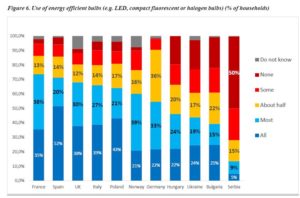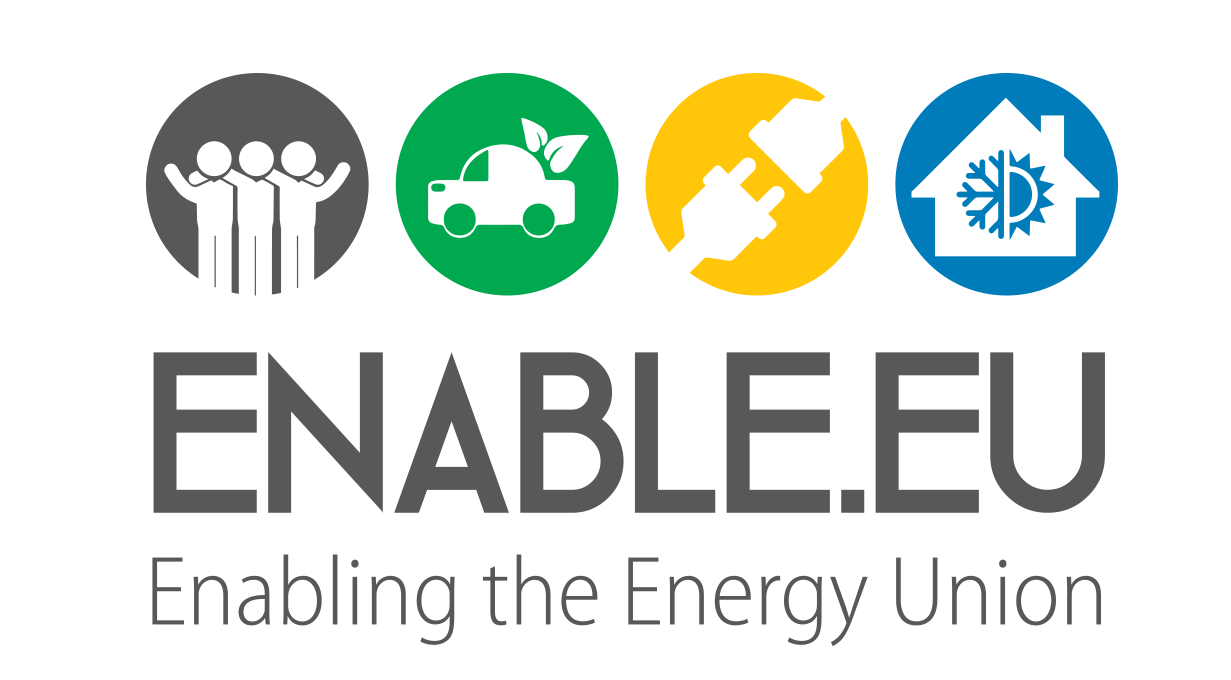 ENABLE.EU has just released a comparative analysis of the recently conducted household survey, aimed at addressing public acceptance and attitudes towards the low-carbon energy transition in Europe. This nationally representative survey was conducted in the 11 project partner countries – Bulgaria, France, Germany, Hungary, Italy, Norway, Poland, Serbia, Spain, Ukraine and the United Kingdom – and was designed to allow both in-depth analysis of country specifics and cross-country comparisons. It focused on three key consumption areas – heating and cooling, mobility and use of electricity, as well as governance and prosumers’ issues related to the energy transition. While the comprehensive literature review presented numerous studies on these topics over the last decade, the ENABLE.EU survey covers the whole spectrum of factors driving both individual and collective (e.g. at the household level) energy choices and the respective behaviour, thus deepening our understanding of socio-cultural, economic, technological and governance factors that affect the everyday practices of European citizens.
ENABLE.EU has just released a comparative analysis of the recently conducted household survey, aimed at addressing public acceptance and attitudes towards the low-carbon energy transition in Europe. This nationally representative survey was conducted in the 11 project partner countries – Bulgaria, France, Germany, Hungary, Italy, Norway, Poland, Serbia, Spain, Ukraine and the United Kingdom – and was designed to allow both in-depth analysis of country specifics and cross-country comparisons. It focused on three key consumption areas – heating and cooling, mobility and use of electricity, as well as governance and prosumers’ issues related to the energy transition. While the comprehensive literature review presented numerous studies on these topics over the last decade, the ENABLE.EU survey covers the whole spectrum of factors driving both individual and collective (e.g. at the household level) energy choices and the respective behaviour, thus deepening our understanding of socio-cultural, economic, technological and governance factors that affect the everyday practices of European citizens.
The survey covers the following major interrelated issues:
- Household socio-economic characteristics (gender, age, income and education levels), including possible gender-based perceptions, value judgments and practices;
- Household energy needs and use of energy in everyday situations (e.g., going to work, heating the home, using transportation) with a focus on the three key consumption areas (heating and cooling, mobility and use of electricity) and governance and prosumer issues;
- Changes undergone by individuals or households in recent years regarding their energy habits, energy consumption patterns and everyday energy practices or lifestyles;
- External (e.g. social norms, policies, and infrastructure) and internal factors (e.g. attitudes, values and beliefs), affecting individual and collective energy choices and the respective behaviours, thus giving some insights into possible cognitive and moral factors driving individual and collective decision making.
It also addressed three research questions: 1) What daily and long-term energy choices regard the use of energy at home and in daily household activities, and how do these differ among countries? 2) What combination of factors influences energy choices and how do these factors differ across countries? 3) What are the characteristics of vulnerable groups and groups that have been less involved in the energy transition?
The survey results confirm the existence of vast differences among the 11 countries studied and give valuable insight on certain trends in the development of a low-carbon future in Europe. In general, they pointed out the diversity of the countries regarding experiences and attitudes that drive energy choices. For some aspects, the countries could be grouped into specific sub-groups, corresponding to their social, economic and political development (e.g. Central and Eastern European vs Western European or high- vs low-GDP countries), yet these groupings would not be relevant for other aspects. That said, the more advanced stage of development towards a low-carbon energy system in Norway, Germany, the UK and partially in France has been confirmed by the survey’s findings.
